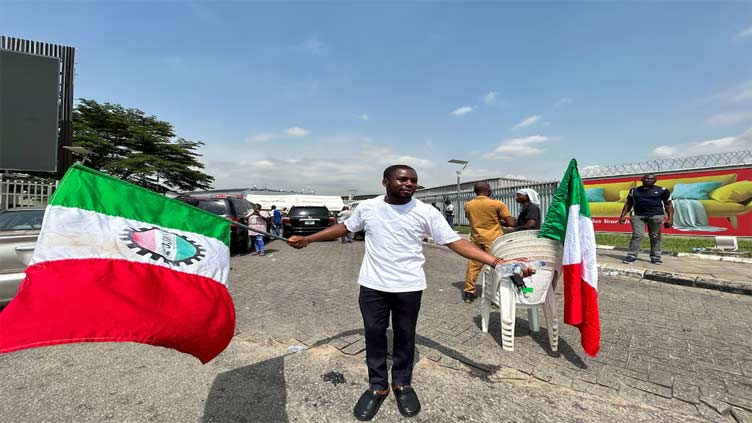Nigerian unions shut down power grid, disrupt airlines with strike over minimum wage

Business
This strike is the fourth embarked upon by the Nigerian Labour Congress
LAGOS/ABUJA (Reuters) - Nigeria's main labour unions on Monday shut down the national grid and disrupted airline operations across the country as they began an indefinite strike over the government's failure to agree a new minimum wage.
This strike is the fourth embarked upon by the Nigerian Labour Congress (NLC) and the Trade Union Congress (TUC), two of the country's biggest unions, since President Bola Tinubu took office last year.
The Transmission Company of Nigeria (TCN) said union members drove away operators at the country's power control rooms and shut down at least six substations, which eventually shut the national grid at 02:19 am (0119 GMT).
Nigerian airline Ibom Air said it was suspending flights until further notice due to the strike, while another, United Nigeria, said airports across the country have been shut down and that striking workers had permitted none of its flights to operate.
Electricity and aviation unions said in a statement on Monday they had directed their workers to withdraw their services in compliance with the indefinite strike.
Since taking office Tinubu has embarked on Nigeria's boldest reforms, which has fuelled a rise in inflation to an almost 30-year high and worsened a cost-of-living crisis in Africa's most populous nation.

He has been under pressure from unions to offer relief to households and small businesses after scrapping subsidies on petrol, which kept fuel cheap but cost the government $10 billion last year.
Unions declared an indefinite strike on Friday after talks for a new minimum wage meant to cushion the impact of reforms collapsed. They said the strike would last until a new minimum wage was in place.
The TCN said it was making effort to recover and stabilize the national grid, but unions were obstructing grid recovery nationwide.
Unions have also demanded a reversal of an electricity tariff hike effected last month for better-off consumers who use the most power, as the government tries to wean the economy off subsidies.

On Thursday, Nigeria's privatisation body said the country had secured a World Bank loan of $500 million for its electricity sector.


